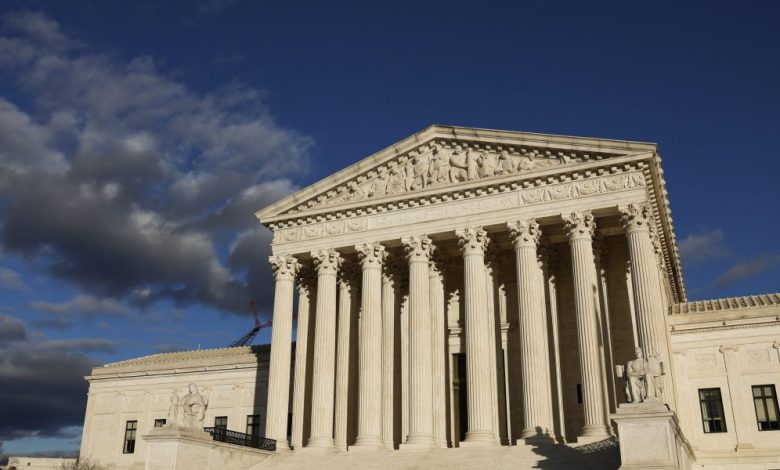Biden’s student debt cancellation plan is pending two lawsuits in February

It’s a pivotal month for President Joe Biden’s one-time student loan forgiveness plan: hearings in the US Supreme Court begin on the 28th in two cancellation-related cases that could prevent millions of Americans from paying thousands of dollars in debt to eliminate .
The Supreme Court is dealing with two cases related to forgiveness. The first, Nebraska vs. Biden, was brought forward by six conservative attorneys general who say the Biden administration is exceeding its powers. The second was brought in by a conservative advocacy group for two people: one who does not qualify for the forgiveness plan and one who does not qualify for $20,000 in forgiveness.
The Biden administration says it has the authority to implement the programs under the HEROES Act of 2003, which allows the Secretary of Education — currently Miguel Cardona — during times of national emergency (in this case, the COVID-19 pandemic). In particular, it allows him to enforce provisions related to student finance programs, such as B. Refund Terms, “repeal or amend”.
The White House argues that debt relief will ensure borrowers are not financially worse off after the pandemic when payments on federal student loans, which have been suspended for nearly three years, resume.
“Ending this pause without additional relief for lower-income borrowers would result in delinquency and default rates rising above pre-pandemic levels,” the U.S. Department of Justice wrote in a brief filed last month. Two dozen legal scholars filed an amicus brief with the Supreme Court last month to support the legal position of the Biden administration.
What the court will decide is whether the COVID-19 emergency is adequate justification for widespread aid, says Vaishali Rao, a partner at Hinshaw & Culbertson. Rao represents service providers, collection agencies and lenders and has also researched student loan origination, administration and collection practices.
“The language of the HEROES Act is pretty clear that the government has the power” to forgive the debt, Rao says. “Does it make sense given the circumstances, or is there something closer that could be done?”
Many borrowers could not afford their student loan debt even before the pandemic, a problem that is only going to continue, Rao says. This forgiveness could set a precedent for future government action.
Biden’s plan, which he announced last year, would forgive up to $10,000 of federal debt for borrowers making less than $125,000 a year and up to $20,000 for those who make during their received Pell Grants in school. When applications for one-time forgiveness were made, about 26 million people applied before they were closed.
What should borrowers do?
For now, all student loan borrowers can wait. And with a 6-3 Conservative majority on the Supreme Court, it’s best to be practical. If you can make it, pay off your debt while accruing no interest. Once payments resume, interest will also accrue.
“It’s better to be conservative and think this could lose and then have money to make the payments,” Rao says. “And if the government wins, that’s an added bonus. I worry about people who don’t have a financial plan because they’re counting on forgiveness.”
If you’re struggling and can’t make payments when the federal break ends, it never hurts to reach out to your student loan administrator — the company that bills you every month — and see if they can help you come up with a repayment plan .
Rao also advises borrowers to “get to know” their debt. Do you have federal loans, private loans, or a mix? Only federal loans are eligible for forgiveness.
Also, make sure you take advantage of government loan forgiveness, borrower deferrals until repayment, and other targeted assistance programs when you can. These are all independent of Biden’s one-off plan and will remain in effect even if the Supreme Court rules against Biden’s proposal.
The oral hearings are scheduled for February 28, 2023. More than 26 million Americans have applied for the one-time student debt relief, according to the Biden administration.
Our new weekly Impact Report newsletter explores how ESG news and trends are shaping the roles and responsibilities of today’s leaders. Subscribe here.



